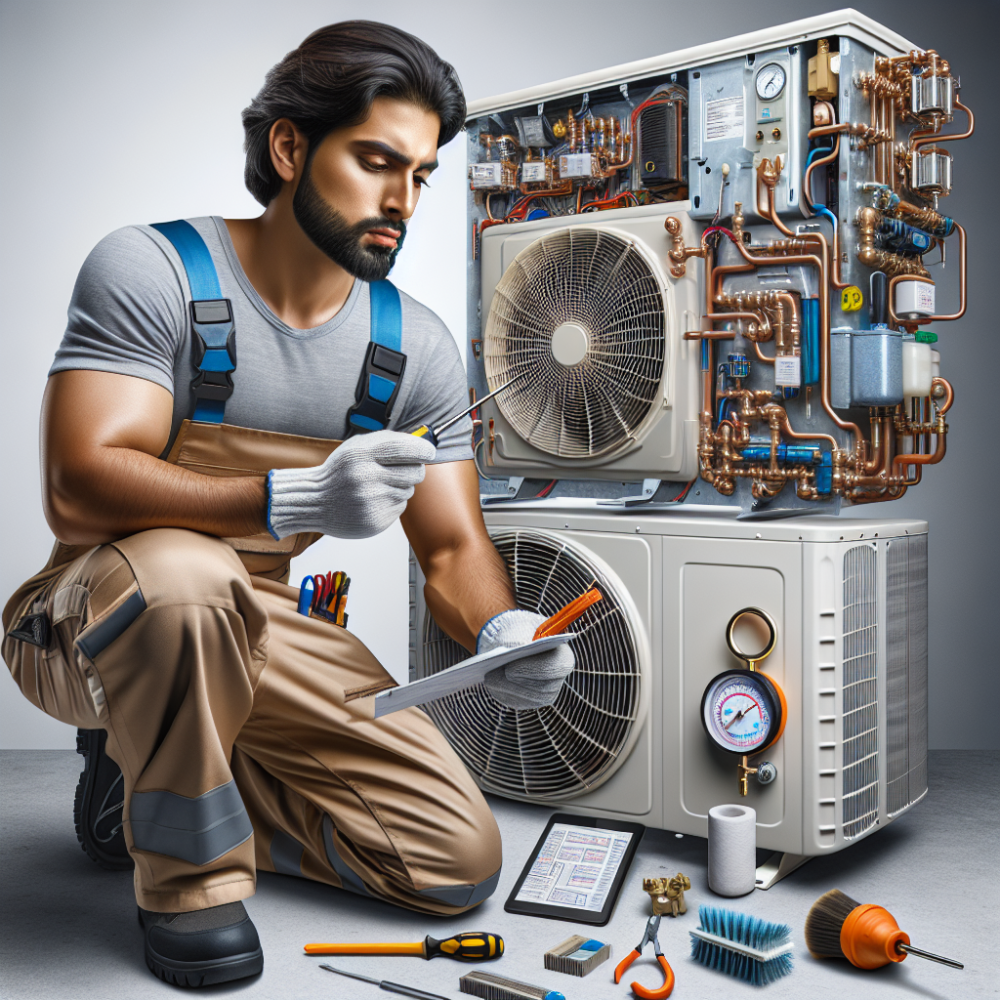Essential Air Conditioning Maintenance Tips

Posted on: Sunday, March 3rd, 2024
Properly maintaining your air conditioning (AC) system is crucial for ensuring optimal performance, energy efficiency, and longevity. Regular maintenance helps in identifying potential issues before they escalate into costly repairs or replacements. Furthermore, a well-maintained AC unit can significantly contribute to indoor air quality, providing a more comfortable and healthier living environment. By adhering to a few key maintenance strategies, homeowners can enjoy effective cooling throughout the warmer months without unexpected breakdowns.
1. Regular Filter Replacement
One of the simplest yet most effective ways to maintain your AC's efficiency is by regularly replacing or cleaning its air filters. Clogged or dirty filters restrict airflow, causing the system to work harder, which can lead to increased energy bills and reduce the system’s lifespan. Most filters need to be replaced every 1-3 months, depending on usage and the type of filter.
2. Annual Professional Inspection
Having your AC system inspected by a professional at least once a year ensures that it’s running as efficiently as possible. During an inspection, a technician can spot issues that may not be obvious to the untrained eye, such as coolant leaks or electrical hazards. This preventive measure can save you money and extend the life of your unit.
3. Cleaning the Coils
The AC's evaporator and condenser coils can collect dirt over their months and years of service, impairing the unit's ability to absorb and expel heat. Cleaning these coils regularly improves your system's efficiency and cooling capacity. In most cases, this task is best left to a professional because it can require specialized equipment and knowledge.
4. Checking the Thermostat
Ensure your thermostat is working correctly and efficiently by checking its settings and functionality periodically. If you’re still using an older, non-programmable thermostat, consider upgrading to a smart thermostat. These devices allow for much more precise temperature management, can learn your schedule, and adjust the temperature accordingly, which can save you money on energy bills.
5. Clearing the Area Around Outdoor Unit
The outdoor component of your AC system needs adequate airflow to function properly. Ensure there's at least 2-3 feet of clear space around it. Remove any leaves, dirt, or debris that may have accumulated around the unit to prevent obstructing the airflow and potentially damaging the system.
6. Ensuring Proper Insulation and Sealing
Proper insulation and sealing of your home can significantly impact the efficiency of your air conditioning system. Check for leaks around windows, doors, and other openings where cool air might escape. Enhancing the insulation in your home can reduce the workload on your AC, leading to energy savings and prolonged system lifespan.
7. Checking and Repairing Ductwork
Leaky or uninsulated ductwork can lose up to 30% of airflow, causing your system to work harder and less efficiently. Having your ductwork inspected for leaks and ensuring it is properly sealed and insulated can drastically improve your AC's performance and efficiency.
8. Adjust Your Ceiling Fans
Using ceiling fans in combination with your AC can allow you to raise the thermostat setting about 4 degrees with no reduction in comfort. This small adjustment can lead to significant savings on your cooling costs over time. Make sure your ceiling fans are set to rotate counterclockwise during the summer, which pushes cool air down.
9. Avoid Heat Build-up During the Day
Avoid activities that generate a lot of heat, such as cooking on the stovetop and using the dryer during the hottest parts of the day. Instead, try to schedule these activities during cooler times, such as the early morning or late evening. This prevents your AC from overworking to combat the extra heat.
10. Upgrading to a High-Efficiency AC System
If your air conditioning unit is old and not as efficient as modern systems, consider upgrading to a newer, high-efficiency model. Today's energy-efficient models can significantly reduce your energy consumption and cooling costs. Additionally, many utility companies offer rebates for installing energy-efficient systems, making the initial investment more affordable.